Rendlesham: 1,400-year-old royal hall unearthed
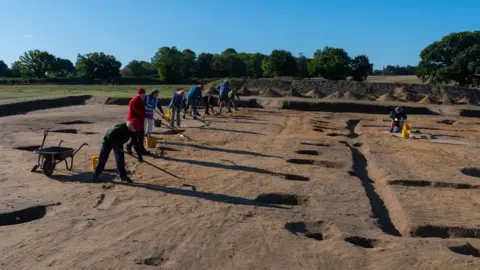 Graham Allen
Graham AllenA royal hall of "international importance" that dates back 1,400 years has been unearthed on private land.
The Hall of the first Kings of East Anglia was discovered in Rendlesham, Suffolk, over the summer.
Prof Christopher Scull said it was the "most extensive and materially wealthy settlement of its date known in England".
It was discovered by a community dig as part of Suffolk County Council's Rendlesham Revealed project.
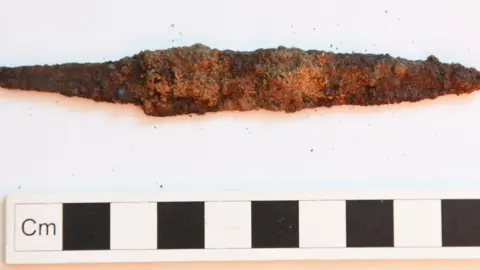 Suffolk County Council
Suffolk County Council The authority said the hall was "recorded in the writings of The Venerable Bede of the 8th Century".
The hall, which was 75ft (23m) long and 33ft (10m) wide, was set within a larger settlement of more than 124 acres (50 hectares).
For 150 years, between AD 570 and AD 720, it was the centre from which a major province of the East Anglian kingdom, focused on the valley of the River Deben, was ruled.
Bede's writings identified Rendlesham as the place where the East Anglian King Aethelwold stood sponsor at the baptism of King Swithelm of the East Saxons, between the years AD 655 and 663.
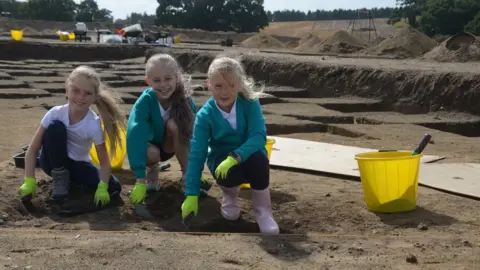 Suffolk County Council
Suffolk County Council 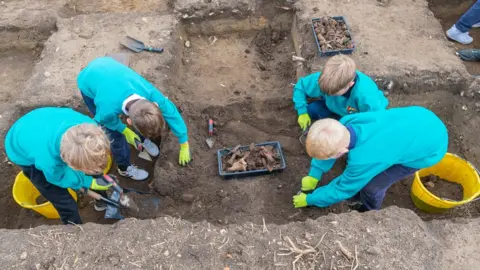 Graham Allen
Graham AllenProf Scull, the project's principal academic advisor, said: "The results of this season's excavation are of international importance.
"Rendlesham is the most extensive and materially wealthy settlement of its date known in England, and excavation of the hall confirms that this is the royal residence recorded by Bede.
"Only at Rendlesham do we have the wider settlement and landscape context of an early English royal centre, together with an assemblage of metalwork that illuminates the lives and activities of its inhabitants across the social range."
The work was a "major advance in our understanding of the early East Anglian kingdom and the wider North Sea world of which it was a part," he added.
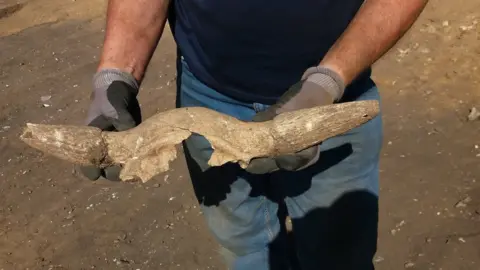 Suffolk County Council
Suffolk County Council The excavations also revealed a perimeter ditch enclosing the royal compound, remains of food preparation and feasting that showed the consumption of vast quantities of meat - mainly beef and pork - and dress jewellery, personal items, fragments of glass drinking vessels and pottery.
Traces of earlier settlements from the Roman period (1st Century AD) and the early Neolithic period (4th Millennium BC) were also found.
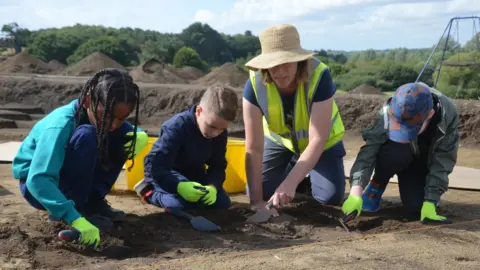 Suffolk County Council
Suffolk County Council Conservative councillor Melanie Vigo di Gallidoro, the authority's cabinet member for protected landscapes and archaeology, said: "It can't be underestimated how important this part of Suffolk is to understanding our local and national heritage."
The area is close to Sutton Hoo where an Anglo-Saxon burial ground was found in 1939.
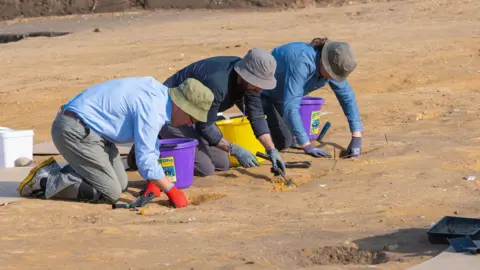 Graham Allen
Graham AllenMore than 250 volunteers, including young adults from Suffolk Family Carers and Suffolk Mind, and primary school children from Rendlesham, Eyke and Wickham Market, were involved.
The excavations finished in the summer and an analysis of the finds is expected next year.
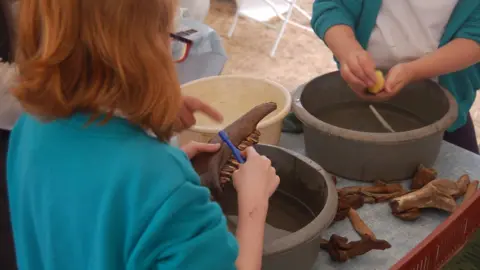 Katie Everard
Katie Everard
Find BBC News: East of England on Facebook, Instagram and Twitter. If you have a story suggestion email [email protected]
